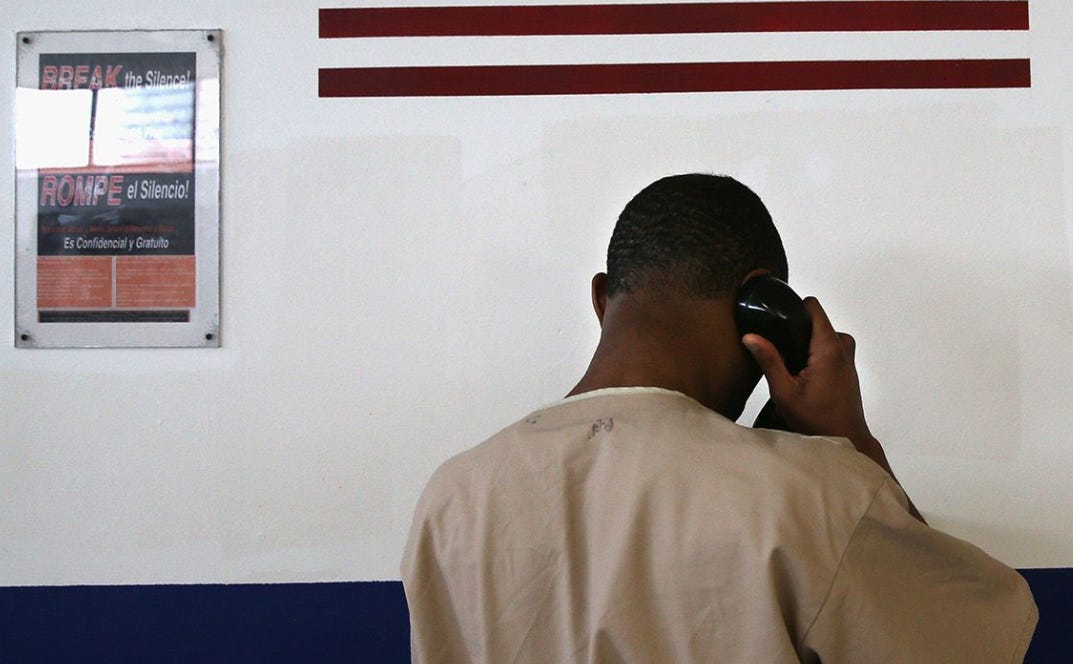Robots behind bars may be a ways off, but prisons and jails have been rapidly adopting other AI and machine-learning tools. Advocates critical of the technology are concerned about opaque data collection processes, privacy violations and bias.Prison telecommunications companies were some of the first to dip their toes in AI technology.
In 2017, LeoTech began marketing Verus, a phone surveillance tool to record and monitor calls. The company uses Amazon’s cloud and transcription services to flag keywords that might alert staff to “valuable intelligence.”
At least three states used the tool to monitor phone calls for mentions of coronavirus during the pandemic, in an attempt to track outbreaks, according to The Intercept.
While tools like Verus were originally marketed as add-ons to existing phone services, many prison telecommunications giants have since made AI call monitoring a default part of their services.
“Given Securus and Global Tel Link are now providing it, it means it’s going to be a lot more accessible in a lot more places,” said Beryl Lipton, an expert on law enforcement and prison surveillance tools at the Electronic Frontier Foundation.The use of these tools has led to serious breaches of attorney-client privilege.
Over the last five years, lawsuits have been filed in several states against Securus, alleging that the company recorded privileged calls. Securus has settled some of the lawsuits and has denied purposely recording protected calls.
Read more | THE MARSHALL PROJECT

